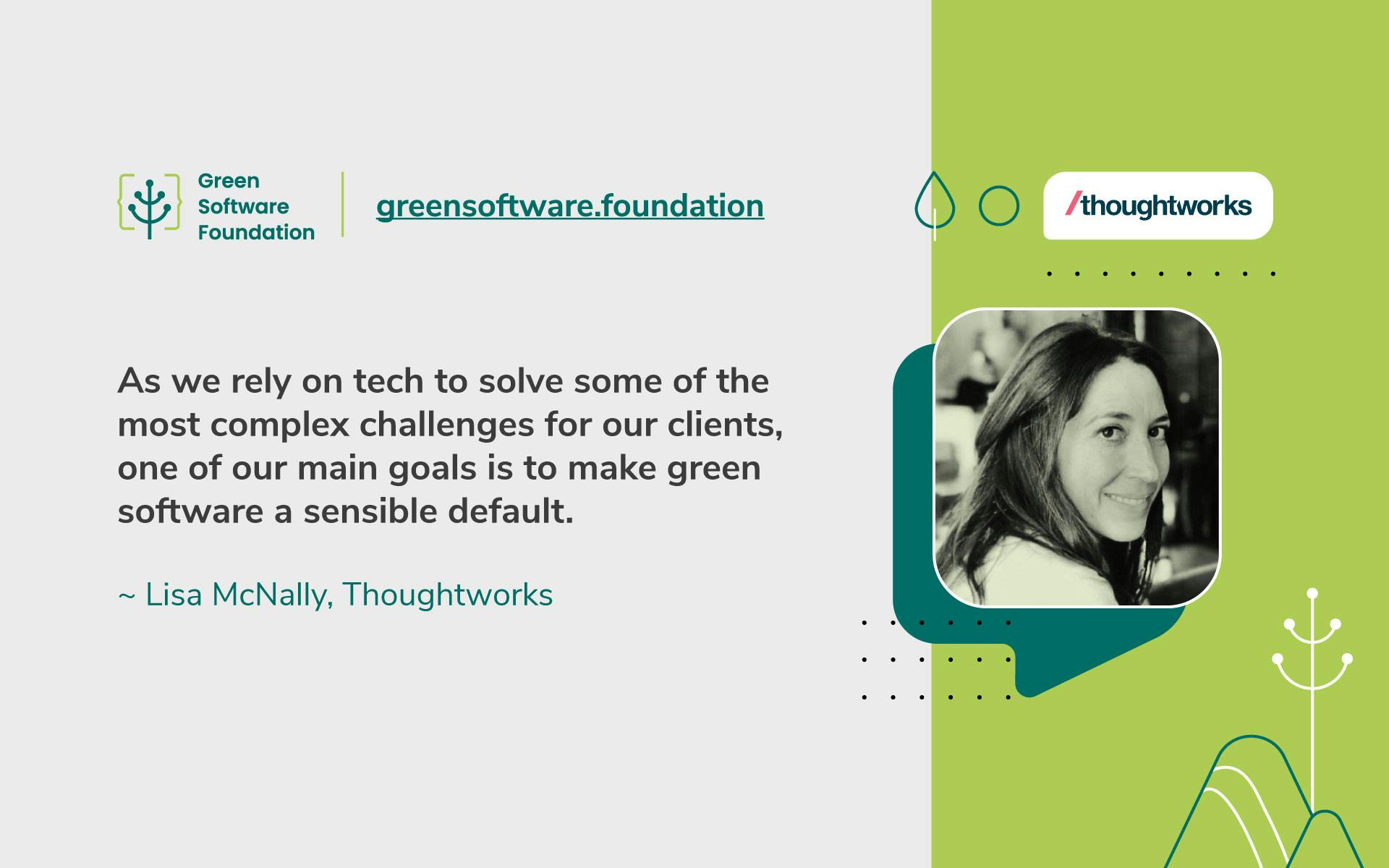What does Thoughtworks do?
We are a global technology consultancy that integrates strategy, design, and software engineering to enable enterprises to thrive as modern digital businesses. We passionately believe that sustainability is foundational to being a modern digital business, which is why we are invested in developing technology solutions that enable our clients to visualize, assess, and take action on their carbon footprint.
Which methodologies do you use?
The foundation of our technology work is a commitment to Responsible Tech, which is both an evolving practice and a mindset to deliver solutions with the best interest of our stakeholders in mind, including society as one of our stakeholders.
Sustainability is at the core of Responsible Tech – our sustainable tech solutions consider how to best optimize for carbon and energy as key metrics to drive day-to-day engineering decisions. With a sustainable mindset of "small actions can have a significant impact," we promote behavior and culture change that lead to measurable outcomes.
How does that manifest in your solutions?
We work with software engineers and technology leaders who see environmental concerns as a much more motivating factor than cost reductions. So, having an organizational structure and the right tools that provide granular data on cost and emissions performance, like the open-source tool that we created, Cloud Carbon Footprint (CCF), enables agency amongst platform teams, which is critical for lasting change.
We're also proud of the Responsible Tech Playbook we co-created with our client, the United Nations. It has a section on sustainability with links to several GSF resources (e.g., the State of Green Software report, page 102).
What is your main goal concerning sustainability and tech?
Technology plays a crucial role in our society and is a double-edged sword. It can be a significant source of emissions, but it also provides carbon solutions. From software to hardware to data centers and the architecture of our IT systems, all of this relies on electricity to power and make them usable and valuable to society. Even though we have made great strides in renewables, about 60% of electricity globally is still generated from fossil fuels.
As we rely on tech to solve some of the most complex challenges for our clients, one of our primary goals is to make green software a sensible default. This means making the technology more energy efficient. In particular, we focus on improving the efficiency of the code itself, on establishing carbon awareness associated with running workloads in the cloud, and even on the hardware we procure and when we operate it.
Tell us about your career path and your interest in green software
Over the last 20 years, I’ve dedicated my career to designing and implementing strategies to mitigate climate change in the transportation, building, and tech sectors. Although this is a broad range of industries, a common thread woven across my work and these sectors has been energy efficiency and behavior change.
A recurring theme has become clear: the same approaches to improve decarbonization outcomes are applicable across all sectors: awareness - gathering meaningful data to make the best choices, and efficiency - doing more with less.
How do you see your role at the GSF?
I'm excited to advance and amplify the mission of the GSF as a board member and a policy working group member because GSF's green software principles and open-source tools enable action-oriented decision-making. I'm interested in green software because, like transportation and green building, it's a fundamental commodity. The innovation and energy that are necessary to propel it are tightly interlinked.
From an awareness perspective, open-source tooling such as CCF provides granular insights into cloud usage. For example, they allow teams to improve efficiency and tackle decarbonization within an organization's scope 3 emissions by running workloads when renewables are available on the grid. Changing code and architecture so an application is responsible for emitting less carbon is how we make software more carbon-conscious and efficient.
This article is licenced under Creative Commons (CC BY 4.0)
